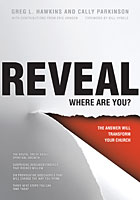A working definition of “spiritual growth” was needed so the Reveal team came up with “An increasing love for God and for other people.”
Then they came up with three hypotheses about spiritual growth:
1. There is a migration path for spiritual growth based on church activities.
2. The most effective evangelism tool is a spiritual conversation.
3. Spiritual relationships are a key driver of spiritual growth.
Before stating what their research found they stated three things that were NOT found.
1. Gender does not impact spiritual growth in any significant way. (There was a female bias because more females participate in programs but the differences between males and females were small)
2. Age does not appear to have a significant impact on spiritual growth.
3. The pattern of spiritual growth does not differ significantly by church. (No doubt the churches surveyed were large in size but I believe that the path of spiritual maturity looks the same regardless of the size of a church. This survive has implications on every church!)
Here’s what they found:
1. Involvement in church activities does not predict or drive long-term spiritual growth. But there is a “spiritual continuum” that is very predictive and powerful. An increasing level of activities did not predict an increasing love for God.



As people grow in their relationship with Christ their spiritual behavior will increase.
2. Spiritual growth is all about increasing relational closeness to Christ. (Spritiaul growth in not about program participation.)
3. The Church is most important in the early stages of spiritual growth. It’s role then shifts from being the primary influence to a secondary influence. I found this insightful. Church programming only has so much to offer. When a participant has maxed out a program’s usefulness they naturally move on to other things. This could be an explanation why 10th – 12th graders tend to drop out of youth groups (though I think it has more to do with social needs instead of spiritual). Maybe this is why adult Sunday School “appears” to be struggling all over the nation. Instead of making Sunday School attendance a goal, maybe we should be equipping people to “feed” themselves. Therefore, the goal of Sunday school could be to teach self feeding skills to growing Christians. Adult Sunday school could have a graduation and once graduated they no longer need to come back. (That's a new though.)
4. Personal spiritual practices are the building blocks for a Christ-centered life. The church plays an important role in the early stages of these practices, but as people grow the church’s role naturally begin to play less of a role.
5. A church’s most active evangelists, volunteers, and donors come from the most spiritually advanced segments.
6. More than 25 percent of those surveyed described themselves as spiritually “stalled” or dissatisfied” with the role of the church in their spiritual growth. A “stalled” person says, “I believe in Christ, but I haven’t grown much lately.” A “dissatisfied” person says, “My faith is central to my life and I’m trying to grow, but my church is letting me down.” This may shed light on the fact that churches are not equipping people to feed themselves. These dissatisfied participates assume it is the church’s responsibility thus deflecting responsibility to themselves. No wonder so many wonderful Christians are grumpy.
 I was listening to a sermon of Dr. David Eubanks, former president of JBC (click HERE to listen). His sermon was entitled, “Is Baptism Necessary for Salvation?” At the front of his sermon he confessed,
I was listening to a sermon of Dr. David Eubanks, former president of JBC (click HERE to listen). His sermon was entitled, “Is Baptism Necessary for Salvation?” At the front of his sermon he confessed,







